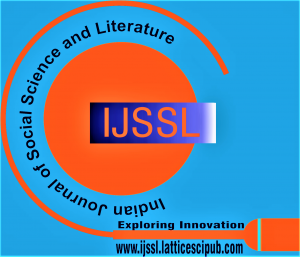![]()
The Examination of Britain’s Annexation of Awadh Illustrates how Colonial Misinterpretation Validated Imperial Policies
Ritik Kumar
Ritik Kumar, Department of BaLLB, National Law School of India University, Bengaluru (Karnataka), India.
Manuscript received on 19 October 2024 | Revised Manuscript received on 29 November 2024 | Manuscript Accepted on 15 December 2024 | Manuscript published on 30 December 2024 | PP: 19-22 | Volume-4 Issue-2, December 2024 | Retrieval Number: 100.1/ijssl.B115204021224 | DOI: 10.54105/ijssl.B1152.04021224
Open Access | Ethics and Policies | Cite | Zenodo | OJS | Indexing and Abstracting
© The Authors. Published by Lattice Science Publication (LSP). This is an open-access article under the CC-BY-NC-ND license (http://creativecommons.org/licenses/by-nc-nd/4.0/)
Abstract: This paper examines the British annexation of Awadh (1856) through the framework of colonial misinterpretation, focusing on how the British applied the norm-deviation concept to justify their imperial policies. Drawing on Partha Chatterjee’s “Pedagogy of Violence,” the paper critiques how Nawab Wajid Ali Shah’s rule was mischaracterized as “deviant” due to its divergence from Western bureaucratic norms. This portrayal fueled British claims of misgovernance, leading to the annexation, which disregarded Awadh’s indigenous political systems and cultural vitality. The annexation’s economic and social disruptions—heavy taxation, property confiscation, and the erosion of local industries—created widespread discontent among peasants, nobility, and sepoys, culminating in the Indian Rebellion of 1857. Additionally, the paper explores the conservative critique of British liberal policies, which highlighted the failures of ignoring local traditions. This conservative backlash advocated for a more respectful approach to Indian customs, ultimately influencing British governance reforms, including the Queen’s Proclamation of 1858. By examining these dynamics, the paper reveals the consequences of imposing foreign standards on a culturally rich and politically complex society, underscoring how the annexation of Awadh became a case study in the larger imperial struggle between governance, cultural misunderstanding, and resistance.
Keywords: Pedagogy of Violence, British Governance, Culturally Rich, Complex Society, Cultural Misunderstanding.
Scope of the Article: History
